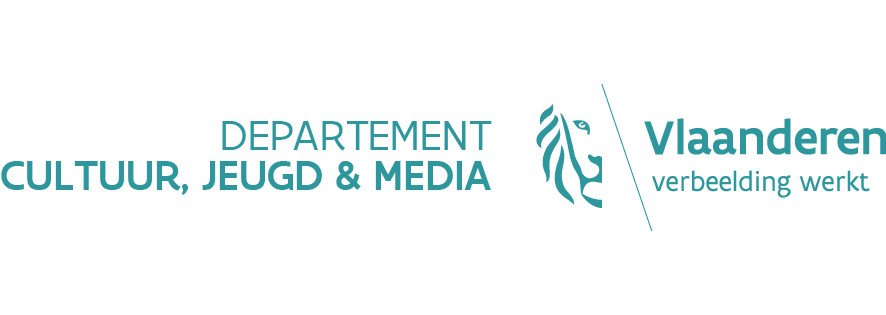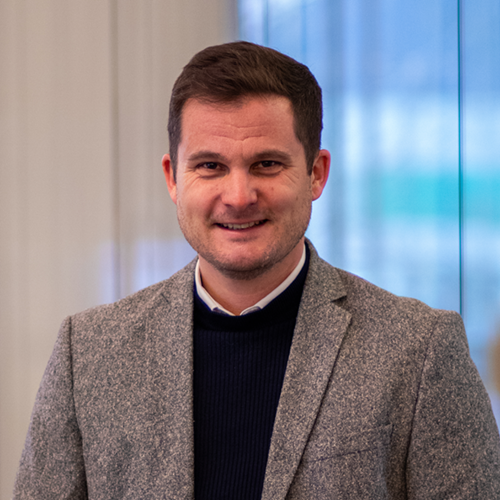Strategic challenge
The Flemish Minister for Culture, Media, Youth and Brussels, Sven Gatz, recently launched a “citizen’s cabinet” with the aim of getting citizens more involved in his policies. The citizen’s cabinet is an initiative that enables citizens to discuss, debate and reach consensus on certain pre-determined themes.
Following successful citizen’s cabinets on the themes of 'culture', ‘youth’ and ‘Brussels’, a new citizen’s cabinet has now been launched to look specifically at policy in relation to ‘media’. Today’s media landscape is a fast-changing environment: the arrival of social media and the internet has changed the speed at which we experience and consume news. In addition, phenomena like the spread of ‘fake news’ pose new challenges for the media sector in Flanders and Brussels. In the face of these challenges, Mr Gatz wanted to find out how the media sector should respond. The main questions at the centre of this citizen's cabinet were as follows: “How do you prefer to be informed? What are the things that really matter in this respect?”
A number of specific sub-questions were put forward in addition to the main questions. They covered topics such as citizen’s expectations of journalists, the public broadcasting service, commercial broadcasters, the government and others.
Approach
The ultimate aim of the citizen's cabinet was to formulate recommendations in relation to the media. To achieve this objective, the project passed through a number of phases, in which Möbius cooperated with two other innovative businesses, CitizenLab and Synthetron.
Idea-generation phase
In the first phase — the idea-generation phase — CitizenLab developed a custom online platform. The central questions on this platform were ‘How do you prefer to be informed? What are the things that really matter in this respect?’ Between 31 January and 7 April 2018, citizens had the opportunity to post responses and ideas in relation to these questions. To keep a clear overview and structure and to ensure citizens received the most personal communication possible, CitizenLab decided to use a number of sub-themes on its platform, including ‘news anywhere, anytime’, ‘information is never free’, ‘everyone is a journalist’ and so on.
Given the fact that certain target groups might struggle to take part in an online platform or simply prefer to get together face-to-face to address the questions set by the citizen's cabinet, the opportunity to organise mini citizen’s cabinets was also provided. To support these target groups, a comprehensive roadmap was drawn up. This roadmap included a number of critical questions to assess whether a mini citizen’s cabinet was the right option, as well as several discussion pointers and a selection of concrete scenarios around which to structure a mini citizen’s cabinet.
In-depth phase
A number of research questions were defined alongside the idea generation phase. These were further explored in the in-depth phase using the technology provided by Synthetron, which allowed citizens to participate simultaneously in online debates from their own PCs. The topics covered by these debates included ‘fake news’, ‘everyone is a journalist’ and ‘tomorrow’s news’.
Face-to-face session
The output from these two phases provided a rich seam of useful input for a face-to-face session. On Saturday 21 April, more than fifty citizens came together in person in the Flemish Parliament for a day of interactive debates and brainstorming sessions to further discuss the results of the two previous phases, explore them in more depth and refine them into concrete policy recommendations.
Result
More than 1000 citizens were involved across the duration of the project. At the end of the face-to-face session, the Minister received a list of the ten most popular recommen-dations for the various themes in relation to media. On the basis of a comprehensive final report, the Minister will use the wealth of information obtained as a foundation for policy choices in the year ahead and as an inspiration for management contracts with certain actors or for other organisations and government bodies. The policy recommen-dations produced by the project will undoubtedly prove useful for the Minister's colleagues in other policy areas and government bodies too.










